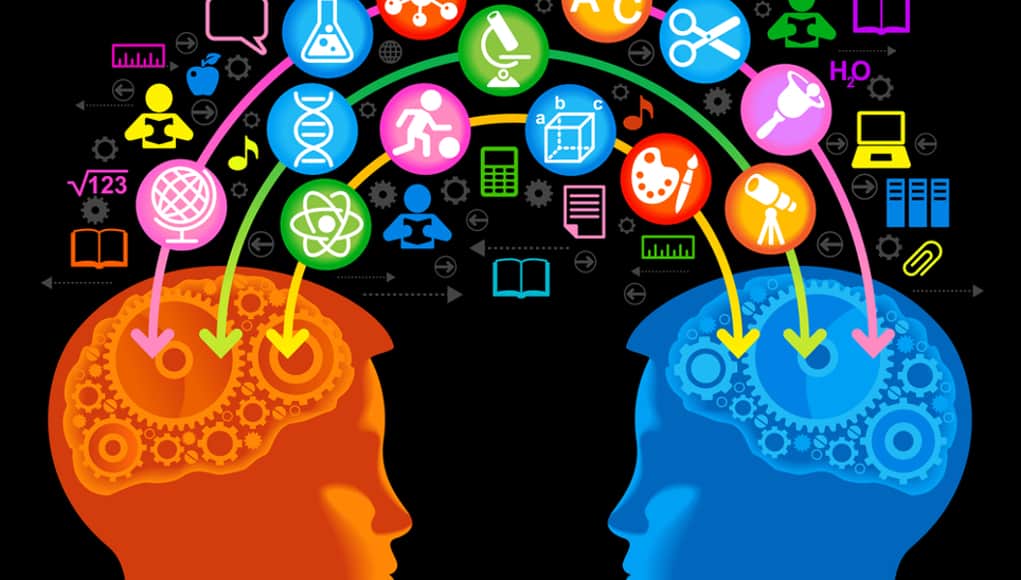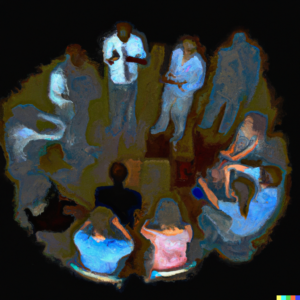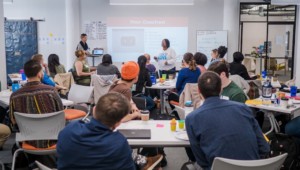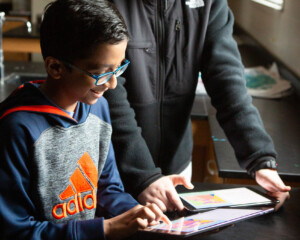Sparks of Knowledge to Ignite Ed Research

By: Saro Mohammed
At The Learning Accelerator, we are restless when it comes to catalyzing education. We understand that change is slow, but we also recognize that change for the better cannot happen without the transparent, open, and frictionless sharing of knowledge among those who are doing the work. This is why we are so excited about our new monthly series, IgnitED Research.
Each month, we release a bite-sized unit of learning science evidence that is tested, tried, and true and we highlight how it is relevant to the teaching and learning happening in classrooms today. We discover the relevance and applicability of each unit from a practitioner who has learned about the evidence and built their classroom practices around it. We also present how these learning science facts are especially relevant to classrooms in which in-person learning is supported by technology to make the learning experience more personalized, data-driven, and mastery-based.
Each four-minute IgnitED Research video is paired with an Insight that contains links to more resources along with quotes from researchers about the evidence base itself. However, each monthly installment is not meant to be a crash course in research – we focus on an educator’s experience and the specific dos and don’ts arising from the research. The videos and Insights are filled with actionable, meaningful examples and recommendations from a teacher, for other teachers.
In our first release, “The Myth of Learning Styles,” Jin-Soo Huh of Distinctive Schools in Chicago suggests that providing all students with opportunities to learn in different ways is more beneficial (and less work!) than trying to individualize all content in the same way for the same student. Teaching to “learning styles” is, “akin to a fixed mindset,” he says, in that it discourages students from engaging with learning through multiple modes and can, in fact, withhold opportunities for students to engage with different content through modes that may be best for that student and that content.
In our second installment, “Not all Feedback is Created Equal,” we hear from Michael Fauteux of Leadership Public Schools in California about how expanding his feedback practices to include self- and peer-feedback among students has dramatically enhanced the effectiveness of feedback in his classrooms. Mike also described that feedback criteria must be clear, and students should have the means and time to process, reflect on and review feedback in order to benefit from it. Mike’s current work on feedback focuses on identity work among his teachers and students to ensure feedback is given and received in a safe and relevant manner.
We hope these monthly resources ignite your interest and further your knowledge about evidence-based blended and personalized practices. Our upcoming installment will feature Nelly Lopez from Lindsay Unified School District in California and her experiences with shifting to mixed-ability groups in her classroom. She will share how all students benefit – and thrive – when they are able to interact with their peers at different points in their learning journey. Future resources will focus on topics like retrieval practice and its robust effect on learning, the downsides of extrinsic rewards, the effectiveness of mastery learning, the importance of prior knowledge to learning, and more.
You will find our full suite of IgnitED Research resources by visiting the Insights section of our website. If you have any feedback about these resources or suggestions for educators or knowledge we should feature, we would love to hear from you! Please contact Saro Mohammed.
For more, see:
- 4 Myths About Learning Styles Debunked
- Better Formative Feedback: Work Worth Doing in a Place Worth Being
- How Continuous Feedback Fosters Learning
Saro Mohammed, Ph.D., is a Partner at The Learning Accelerator where she leads measurement work to increase the field’s understanding of effective and equitable K-12 blended teaching and learning practices. Find Saro on Twitter at @EdResearchWorks.





0 Comments
Leave a Comment
Your email address will not be published. All fields are required.